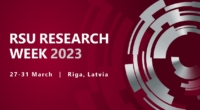A research team in China has developed two novel broad-spectrum adjuvants that can significantly boost the immune response to vaccines. Using computer-aided molecular design and machine learning, they were able to increase the effectiveness of vaccination against specific types of cancer in animal models. Adjuvants amplify and prolong the effect of vaccine immunizations. The new adjuvants are designed to bind to toll-like receptors (TLR) on dendritic cells, which are used to detect the characteristic molecular patterns of pathogens. Comprehensive in vitro, ex vivo, and in vivo studies demonstrated that the adjuvants bind to several different TLR and increase the activation of dendritic cells, presentation of antigens to T-cells, and their activation. The researchers found that mice treated with tumor-specific antigens plus one of these new adjuvants demonstrated strong immune responses that suppressed tumor growth and lung metastases after implantation of specific cancer cells. The team’s work demonstrates the effectiveness of using computer-aided molecular design and machine learning to develop adjuvants that significantly boost the immune response to vaccines against specific types of cancer.
Chinese researchers develop novel adjuvants that boost the immune response to vaccines against specific types of cancer
A team of researchers in China has developed two novel broad-spectrum adjuvants that can significantly boost the immune response to vaccines. The adjuvants were created using computer-aided molecular design and machine learning, and they are designed to amplify and prolong the effect of vaccine immunizations. In animal models, the researchers found that these adjuvants increase the effectiveness of vaccination against specific types of cancer.
Adjuvants are compounds added to vaccines that stimulate the immune system. The new adjuvants developed by Bing Yan, Sijin Liu, and their team at various research centers in Beijing and Guangzhou are designed to bind to toll-like receptors (TLR) on dendritic cells, which are used to detect the characteristic molecular patterns of pathogens. By using a substance library of 46 different ligands that are compatible with the binding site, the researchers were able to anchor these ligands to the surfaces of biocompatible gold nanoparticles, which makes them more easily bound by the TLR. Comprehensive in vitro, ex vivo, and in vivo studies demonstrated that the adjuvants bind to several different TLR and increase the activation of dendritic cells, presentation of antigens to T-cells, and their activation.
The researchers found that mice treated with tumor-specific antigens plus one of these new adjuvants demonstrated strong immune responses that suppressed tumor growth and lung metastases after implantation of specific cancer cells. Aluminum salts have been successfully used as adjuvants for many decades, but older versions of adjuvants had troublesome side effects. Newer versions need to be tailored for every individual vaccine, but the novel broad-spectrum adjuvants developed by the Chinese research team are effective and well-tolerated.
The team’s work demonstrates the effectiveness of using computer-aided molecular design and machine learning to develop adjuvants that significantly boost the immune response to vaccines against specific types of cancer. The research was published in the journal Angewandte Chemie.
Don’t miss interesting posts on Famousbio









